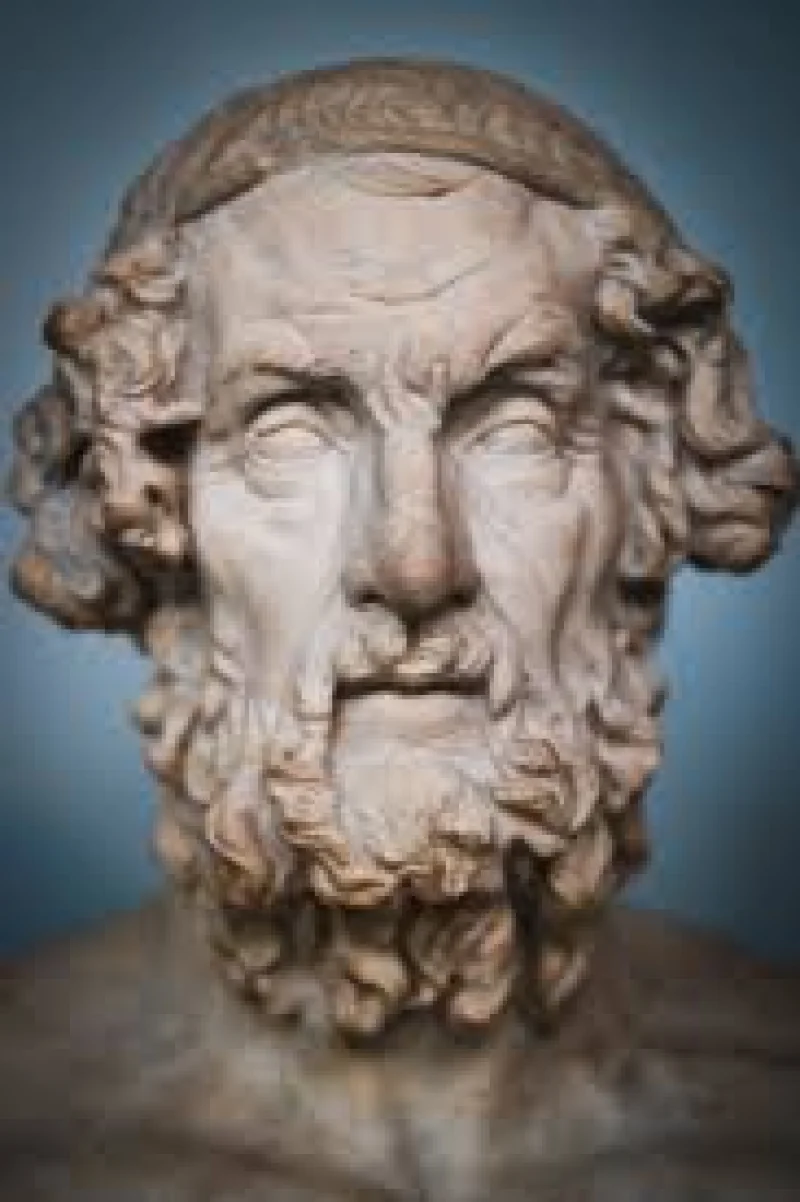Short Summary
Homer is a legendary ancient Greek poet traditionally said to be the author of two of the greatest epic poems of ancient Greece, "The Iliad" and "The Odyssey." These works have had a profound impact on Western literature and culture, inspiring countless adaptations and studies. Homer’s epics are central to the Western canon and provide invaluable insights into ancient Greek culture, society, and values. Despite debates about his existence, Homer's influence as a foundational figure in literature remains undisputed.
Early Life & Education
Little is known about the early life of Homer, and much of it is shrouded in mystery and legend. It is traditionally believed that he was born around the 8th century BCE, possibly in one of several cities that claimed him, including Chios and Smyrna. There is much debate about whether Homer was a single individual or a symbolic representation of a group of poets. The details of his education are also unclear, but it is assumed that he was well-versed in the oral tradition of storytelling, which was prevalent in ancient Greece. This oral tradition likely played a significant role in shaping his works.
Career Highlights
Homer's career is encapsulated in his two major works, "The Iliad" and "The Odyssey," both epic poems that have been central to the Western literary tradition. "The Iliad" is set during the Trojan War and focuses on the hero Achilles, while "The Odyssey" follows the journey of Odysseus as he returns home from the war. These works are notable for their poetic style, rich characterization, and exploration of themes such as heroism, honor, and the divine. Despite the lack of concrete evidence about his life, Homer's impact on literature and storytelling is immeasurable, establishing foundational narrative techniques and themes.
Major Achievements
- Author of "The Iliad," an epic poem detailing the events of the Trojan War.
- Author of "The Odyssey," an epic poem following Odysseus's journey home.
- Influenced the development of Greek culture and Western literature.
- Inspired countless adaptations, literary works, and scholarly studies.
Famous Quotes
- "The journey is the thing."
- "Hateful to me as the gates of Hades is that man who hides one thing in his heart and speaks another."
Interesting Facts
- The exact existence and identity of Homer are subjects of scholarly debate.
- Homer's works were originally transmitted orally before being written down.
- Several cities in ancient Greece claimed to be his birthplace.
- Homer's epics are often studied to understand ancient Greek culture and values.
- The term "Homeric" is used to describe epic scale and grandeur.
Legacy / Influence
Homer's legacy endures through the continued study and appreciation of his epic poems, which have shaped the foundations of Western literature. His works have influenced countless authors, poets, and playwrights, providing a model of storytelling that emphasizes heroism, adventure, and the complexities of human nature. Homer's impact is evident in the enduring popularity of his stories and the profound influence they have had on literature, art, and culture across the centuries.
FAQ
Q: Why is Homer famous?
A: Homer is famous for authoring "The Iliad" and "The Odyssey," two foundational epic poems in Western literature.
Q: Was Homer a real person?
A: The existence of Homer is debated; some scholars view him as a legendary figure representing a tradition of oral poets.
Q: What themes are prevalent in Homer's works?
A: Common themes include heroism, honor, fate, and the relationship between humans and the divine.
Q: How did Homer influence Western literature?
A: Homer set a standard for epic storytelling and influenced narrative structure, character development, and thematic exploration in literature.











